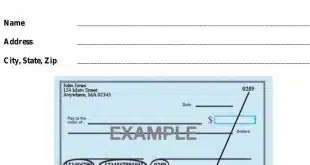Green, as in save the environment, and green, as in cash, can be two effective appeals financial institutions can use to persuade consumers to pay bills electronically through bank Web sites, though banks should be especially careful about cash incentives, researchers claim. And the security worries consumers express about electronic bill pay can be a smokescreen for their unwillingness to try new technology, not a true fear of losing money. Those were some of the conclusions presented this week at a Web-based seminar sponsored by Fiserv Inc.'s CheckFree bill-pay subsidiary that featured data from Forrester Research Inc. and Aspen Analytics. Data presented included findings from the two firms' studies of the online behavior of SunTrust Banks Inc. customers. The more a customer uses the full range of online-banking services, ultimately moving up the scale to becoming a frequent bill-pay customer, the more profitable that customer is and the less likely he or she is to leave the financial institution, says Catherine Graeber, vice president at Cambridge, Mass.-based Forrester. “The bottom line is you have to move people through the adoption [of online and bill-pay services] or you're leaving money on the table,” she said. Avid bill-pay users, the so-called e-bill SunTrust customers who signed up to view three or more bills monthly through SunTrust's online-banking site, were 78% less likely to “churn,” or close their accounts, than the customer base in general, according to Kirk Gripenstraw, senior research director at West Chicago, Ill.-based Aspen. The firm tracked online-banking usage by more than 200,000 SunTrust checking-account customers from February 2006 through February 2007. All e-bill users, including the lighter ones, were 65% less likely to close their accounts. By other measures, such as the amount of funds on deposit and net present value, the researchers found heavy e-bill users to be highly profitable for the bank. Motivating customers to become bill-pay users involves overcoming consumers' security fears and technological inertia. A sizable subset of mostly younger consumers readily adopts new technology, but others have reservations, the researchers said. In a second-quarter 2007 study, Forrester asked 4,985 U.S. and Canadian online consumers who don't view bills through their bank or credit union's Web site about why they don't. Some 41% said they have security concerns, and 31% said they don't want to give up receiving paper bills. “That security reason always pops up,” said Graeber. She added that she doesn't discount that perception, but in many cases “I do think it's a smokescreen” for a reluctance to try new technology or other reasons. Some consumers simply like being able to refer to paper statements for their record-keeping. How to convert the fearful or skeptical? An appeal to consumers' environmental sentiments might strike a chord. When Forrester presented online consumers who receive electronic financial statements with eight possible reasons for why they stopped receiving mailed statements, 48% cited “it's better for the environment.” That reason bested by 16 percentage points the second-highest reason, that the financial institution stopped sending paper statements once the customer enrolled for electronic statements. Graeber also noted that Philadelphia-based Sovereign Bancorp Inc. ran a “green” advertising campaign in 2007 that resulted in a 32% net lift to e-bill activations. Other inducers involve marketing and technology, including clear explanations of e-bills' benefits, pushing the “free” aspect of electronic bill-pay, matching billers' direct e-bill sites on speed in posting payments, and enabling bank bill-pay sites to alert customers about the arrival of a specific bill, she added. Financial institutions should use one other motivator?cash rewards?with caution, Graeber said. Some credit card issuers have tried them, she noted, but she recommended financial institutions largely avoid them when launching e-bill services because they could be a needless expense. Tech-savvy early adopters in the customer base are likely to enroll without such financial inducements, she said, though she added that cash rewards might be appropriate for jump-starting existing bill-pay programs. “I personally think financial incentives are more for when your quarterly growth rates have plateaued,” she said.
Check Also
Nacha’s Top 50 Originators And Receivers Account for 94% of Payments Volume
The big automated clearing house network Nacha says the volume of ACH payments made at …



